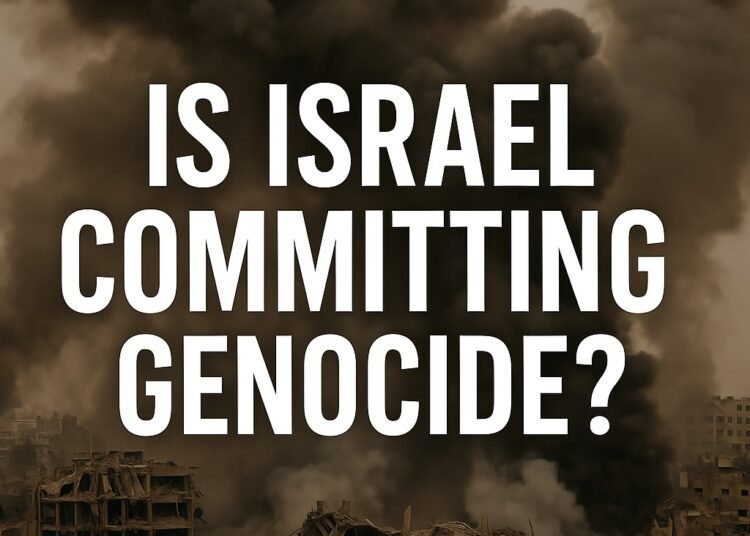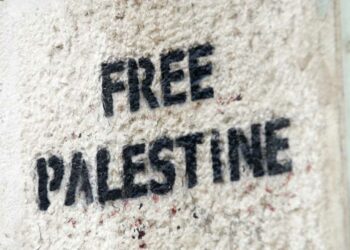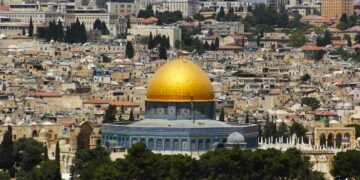Legal Definition of Genocide under International Law
The crime of genocide is defined narrowly in international law by the 1948 UN Convention on the Prevention and Punishment of the Crime of Genocide. Under Article II of that Convention, genocide means any of several specified acts committed with the intent to destroy, in whole or in part, a national, ethnical, racial or religious group, as such (genocide | Wex | US Law | LII / Legal Information Institute). The required acts include: (a) killing members of the group; (b) causing serious bodily or mental harm to members of the group; (c) deliberately inflicting conditions of life calculated to bring about the group’s physical destruction in whole or in part; (d) imposing measures intended to prevent births within the group; and (e) forcibly transferring children of the group to another group (genocide | Wex | US Law | LII / Legal Information Institute). Crucially, genocide is distinguished by a special intent (dolus specialis) – the perpetrator’s aim to **destroy the group itself, in whole or in part, **because of its identity (genocide | Wex | US Law | LII / Legal Information Institute) (genocide | Wex | US Law | LII / Legal Information Institute). In short, it is not enough that protected group members are being killed or harmed; those acts must be carried out with the goal of annihilating that national/ethnic/racial/religious group (at least in part). This specific intent element makes genocide the “epitome of evil” in international law, often harder to prove than other atrocities (Israel rejects accusations of genocide in Gaza war at ICJ hearing | Israel-Palestine conflict News | Al Jazeera).
In evaluating allegations against Israel, this legal standard provides the framework: one must assess whether Israeli forces have committed the enumerated acts (killings, serious harm, creating destructive conditions, etc.) against Palestinians and whether there is evidence of an intent to destroy Palestinians (as a national/ethnic group) in whole or in part. Notably, destroying a group “in part” can mean targeting a substantial portion of the group (for example, the population of Gaza) because of its group identity (genocide | Wex | US Law | LII / Legal Information Institute). Also, direct evidence of genocidal intent is rare; courts often infer intent from a pattern of conduct, statements, and the scale of atrocities. With this legal context in mind, we turn to the facts on the ground in Gaza since October 2023.
Context: Gaza War and Alleged Atrocities Since October 2023
Background: On October 7, 2023, the conflict sharply escalated when Hamas militants from Gaza launched a surprise attack on Israel, killing approximately 1,200 Israelis (mostly civilians) and taking around 240 hostages (Israel rejects genocide charges, tells World Court it must defend itself | Reuters). In response, Israel declared war on Hamas and initiated a massive military campaign in the Gaza Strip. Israeli officials stated that their objective was to destroy Hamas, not to target Palestinian civilians (Israel rejects genocide charges, tells World Court it must defend itself | Reuters). However, the conduct of this war — a combination of intensive aerial bombardment, ground invasion, and a complete siege on Gaza — resulted in unprecedented devastation for Gaza’s 2.3 million residents, the majority of whom are Palestinian civilians (including about 1 million children).
Scope of Military Operations: Israel’s Defense Minister Yoav Gallant announced a “complete siege” on Gaza on October 9, 2023, declaring “There will be no electricity, no food, no fuel. Everything is closed” for Gaza’s population (What have Israeli officials said about Palestinians in Gaza?). Gallant justified these measures with strikingly dehumanizing language: “We are fighting human animals and we act accordingly.” (What have Israeli officials said about Palestinians in Gaza?). Israeli forces then pummeled the densely populated territory with continuous airstrikes and artillery. All crossings into Gaza were sealed, cutting off the flow of basic goods and humanitarian aid. In the initial weeks, neighborhoods were leveled – for example, Beit Hanoun in northeast Gaza was “largely razed” by Israeli strikes within days (Israeli defense minister orders ‘complete siege’ on Gaza after Hamas surprise attack | PBS News). The Israeli military ordered over 1 million residents of northern Gaza to evacuate south, effectively uprooting almost half the enclave’s population in a matter of days. By mid-October, Gaza was under total blockade, with the head of Israel’s energy ministry vowing that no humanitarian supplies would be allowed in until all Israeli hostages were freed (What have Israeli officials said about Palestinians in Gaza?). UN observers and human rights groups immediately warned that such siege tactics – “depriving the population in an occupied territory of food, water, and electricity” – constituted illegal collective punishment (What have Israeli officials said about Palestinians in Gaza?). Israeli officials insisted the harsh measures were a necessary part of war. The result was a rapidly escalating humanitarian catastrophe on a scale Gaza had never experienced.
Civilian Casualties and Destruction of Infrastructure in Gaza
The civilian toll inflicted on Gaza since October 2023 has been staggering and unprecedented in the Israeli-Palestinian conflict. By early November 2023 (about one month into the war), Gaza’s Hamas-run health authorities reported over 10,000 Palestinians killed, including more than 4,000 children (Gaza death toll tops 10,000; UN calls it a children’s graveyard | Reuters). The UN Secretary-General warned that “Gaza is becoming a graveyard for children”, with hundreds of minors reportedly killed or injured each day amid the onslaught (Gaza death toll tops 10,000; UN calls it a children’s graveyard | Reuters). Hospitals, apartment blocks, markets, schools, and UN shelters crowded with displaced families all came under bombardment (Israel rejects accusations of genocide in Gaza war at ICJ hearing | Israel-Palestine conflict News | Al Jazeera) (Gaza death toll tops 10,000; UN calls it a children’s graveyard | Reuters). International organizations described the situation as hellish: medical facilities were overwhelmed with casualties, morgues overflowed, and basic supplies like food, clean water, and medicines were running out due to the siege (Gaza death toll tops 10,000; UN calls it a children’s graveyard | Reuters).
As the war continued, the casualty figures mounted dramatically. By mid-December 2023, Gaza’s death toll had risen to around 18,000 Palestinians killed (The health dimensions of violence in Palestine: a call to prevent genocide – The Lancet). And by January 2024 – roughly “100 days” into the war – over 23,000 Palestinians in Gaza had been confirmed killed, according to Gaza health officials (100 days of war: 23,000 killed in Gaza, with over 60% of homes destroyed : NPR). This equates to more than 1% of Gaza’s entire population killed in just over three months of fighting (100 days of war: 23,000 killed in Gaza, with over 60% of homes destroyed : NPR). Strikingly, the majority of the dead were women and children (100 days of war: 23,000 killed in Gaza, with over 60% of homes destroyed : NPR), indicating the extent of harm to civilians. In addition, at least 50,000 Palestinians were injured by that point, many with life-changing wounds (The health dimensions of violence in Palestine: a call to prevent genocide – The Lancet). Such a scale of civilian death and injury outpaced even the most severe conflicts in recent decades on a per-population basis. (For comparison, observers noted that the daily death rate in Gaza exceeded that of the worst days of the Syrian civil war or the U.S.-led assault on Iraq (Israel rejects accusations of genocide in Gaza war at ICJ hearing | Israel-Palestine conflict News | Al Jazeera).)
Beyond the loss of life, the war wrought devastation of Gaza’s infrastructure and living conditions, potentially satisfying the “conditions of life” element of genocide. Entire city districts were reduced to rubble by thousands of airstrikes. By January 2024, more than 60% of all homes in Gaza had been destroyed or rendered uninhabitable, according to independent assessments (100 days of war: 23,000 killed in Gaza, with over 60% of homes destroyed : NPR). This level of destruction effectively displaced almost the entire population from their residences – over 1.9 million people were internally displaced, crowding into temporary shelters in the south (The health dimensions of violence in Palestine: a call to prevent genocide – The Lancet) (100 days of war: 23,000 killed in Gaza, with over 60% of homes destroyed : NPR). Vital infrastructure was not spared: Gaza’s main power plant shut down for lack of fuel, leaving hospitals to rely on generators until those too failed. Water and sewage systems collapsed; one UN report noted that life-sustaining infrastructure, including bakeries, water wells, and desalination plants, were targeted, putting the population at risk of famine and disease outbreaks (The health dimensions of violence in Palestine: a call to prevent genocide – The Lancet) (The health dimensions of violence in Palestine: a call to prevent genocide – The Lancet). Multiple hospitals were struck by Israeli missiles or shelling despite their protected status, most notoriously the Al-Ahli Arab Hospital blast on October 17, which killed a still-disputed number of civilians and shocked the world (We Are Seeing Urgent Signs of More Mutual Mass Atrocities to Come in Israel and Gaza | Human Rights Watch). By late 2023, at least 100+ medical facilities in Gaza had been damaged or destroyed and dozens of ambulances and health workers had been hit while trying to aid the wounded (We Are Seeing Urgent Signs of More Mutual Mass Atrocities to Come in Israel and Gaza | Human Rights Watch). The UN’s Palestinian refugee agency (UNRWA) also suffered heavy losses – as of early November, 89 UNRWA staff (teachers, doctors, etc.) had been killed in Gaza while trying to shelter civilians (Gaza death toll tops 10,000; UN calls it a children’s graveyard | Reuters).
Humanitarian conditions deteriorated to extremes. Under Israel’s tightened blockade, supplies of food, clean water, fuel, and medicine were almost completely cut off in the initial weeks. Civilians endured what Amnesty International later described as “a slow, calculated death” by bombardment and deprivation (Amnesty International says Israel is committing genocide in Gaza. Israel rejects the allegations | PBS News). By November, the UN estimated 1.6 million Gazans had been uprooted from their homes, many living in makeshift tents or packed into UN schools with little sanitation (Gaza: UN experts call on international community to prevent … – ohchr). An acute hunger and thirst crisis set in; people dug wells in bomb craters or burned furniture for cooking fuel. The World Health Organization warned of spreading infectious diseases. In short, the entire civilian population of Gaza was subjected to conditions of life that were life-threatening – a scenario in which survival became a daily uncertainty for hundreds of thousands. These facts demonstrate that several acts enumerated in the Genocide Convention have indeed occurred: large-scale killing of group members, causing of serious bodily and mental harm, and deliberate imposition of conditions of life (through siege and destruction) calculated to bring about the physical destruction of a significant part of the group (business-humanrights.org). The key question, then, is whether these acts were done with genocidal intent – i.e. an intent to destroy the Palestinian people (at least in part) as such.
Statements and Policies of Israeli Leaders Indicative of Intent
One crucial indicator of intent in genocide cases is the rhetoric and policies articulated by leaders. In the Gaza conflict, numerous statements by Israeli political and military figures have alarmed observers, who interpret them as evidence of an intent to target the Palestinian population as a whole or to treat them as the enemy. Israeli officials have at times openly spoken in terms of collective punishment and used dehumanizing language toward Palestinians in Gaza:
- Defense Minister Yoav Gallant’s “human animals” remark and siege order: On 9 October 2023, as mentioned, Gallant announced a total blockade on Gaza, explicitly confirming that “no electricity, no food, no fuel” would be allowed into the territory (What have Israeli officials said about Palestinians in Gaza?). In the same breath, he referred to those in Gaza as “human animals” and said Israel would act “accordingly” (What have Israeli officials said about Palestinians in Gaza?). This rhetoric, effectively labelling an entire population as sub-human, was widely condemned (a Human Rights Watch director called it “abhorrent” incitement) (What have Israeli officials said about Palestinians in Gaza?). Such language is a textbook example of dehumanization, a known precursor to mass atrocities (Israel paints Palestinians as ‘animals’ to legitimize war crimes: Israeli scholar) (Israel paints Palestinians as ‘animals’ to legitimize war crimes: Israeli scholar). Coupled with the siege policy – which inflicts suffering on the population at large – Gallant’s stance suggested a punitive mindset toward the people of Gaza as a group.
- President Isaac Herzog’s remarks on Gaza’s collective responsibility: A few days later, on 12 October 2023, Israel’s President Isaac Herzog (a usually ceremonial figure who nonetheless often represents the state’s position) made controversial comments seemingly justifying harm to Gazan civilians. Dismissing distinctions between Hamas and Gaza’s populace, Herzog stated of Gaza: “It’s an entire nation out there that is responsible… This rhetoric about civilians not aware, not involved – it’s absolutely not true.” (‘A blood libel’: Herzog says ICJ ‘twisted my words’ to support ‘unfounded’ contention | The Times of Israel). In other words, the elected head of state suggested that all Gazans bore responsibility for Hamas’s actions. When pressed by a journalist if he meant that made them legitimate targets, Herzog denied saying that outright but doubled down that Gazans could have “risen up” to stop Hamas (What have Israeli officials said about Palestinians in Gaza?). These comments were later cited by South Africa in its genocide case as indicative of an official view that every Palestinian in Gaza could be treated as part of the enemy (‘A blood libel’: Herzog says ICJ ‘twisted my words’ to support ‘unfounded’ contention | The Times of Israel) (‘A blood libel’: Herzog says ICJ ‘twisted my words’ to support ‘unfounded’ contention | The Times of Israel). (Herzog has since complained the quote was taken out of context, asserting that Israel does not intentionally target innocents (‘A blood libel’: Herzog says ICJ ‘twisted my words’ to support ‘unfounded’ contention | The Times of Israel). Nonetheless, the implication of his words – collective blame – was clear and was heard as such by many.)
- Other inflammatory statements: Throughout the war, other Israeli officials and influencers made statements that erase the civilian/combatant distinction or call for extreme measures. For example, Prime Minister Benjamin Netanyahu at one point described Gaza as a “city of evil” and warned that Israel would “operate forcefully everywhere” in Gaza (Israel paints Palestinians as ‘animals’ to legitimize war crimes: Israeli scholar) (What have Israeli officials said about Palestinians in Gaza?). Former Deputy Foreign Minister Danny Ayalon openly suggested that Gaza’s entire population could “go to the Sinai desert” in Egypt for their safety – proposing the evacuation of Gazans to tent camps in the desert, an alarming hint at permanent displacement (What have Israeli officials said about Palestinians in Gaza?). (He claimed this would be temporary, but such a plan evokes historical episodes of ethnic cleansing, given most Gazans are already 1948 refugees (What have Israeli officials said about Palestinians in Gaza?).) Israeli hardliners, including high-ranking members of the governing coalition, were reported to use genocidal or eliminationist language on social media and in interviews – for instance, calling Palestinians “snakes” or advocating to “flatten” Gaza (Israel paints Palestinians as ‘animals’ to legitimize war crimes: Israeli scholar) (Israel paints Palestinians as ‘animals’ to legitimize war crimes: Israeli scholar). An Israeli media commentator (and former general), Giora Eiland, went so far as to argue that all Palestinians in Gaza were legitimate targets and mused that even a “severe epidemic” might be useful to deal with Gaza – statements human rights lawyers later cited as direct incitement to genocide (Influential Israeli national security leader makes the case for …) (Statewatch | Case filed at ICC to prosecute Israeli officials for incitement to genocide).
This pattern of public rhetoric from some Israeli leaders has been central to genocide allegations. Genocidal intent can be inferred if officials demonize a civilian population and frame mass violence as acceptable or necessary. In Gaza’s case, international legal experts noted the presence of classic “red flags” for genocide: the dehumanization of Palestinians (e.g. calling them animals, or portraying them all as terrorists), the denial of victimhood (claiming there are “no innocents” in Gaza), and the announcement of policies that inflict collective suffering (besieging food/water, bombing entire districts) (Israel paints Palestinians as ‘animals’ to legitimize war crimes: Israeli scholar) (The health dimensions of violence in Palestine: a call to prevent genocide – The Lancet). A joint statement by 36 United Nations human rights experts in mid-November 2023 specifically warned that “we are sounding the alarm: there is a risk of genocide against the Palestinian people” and condemned the use of “language that dehumanizes Palestinians” by Israeli officials (The health dimensions of violence in Palestine: a call to prevent genocide – The Lancet). These UN experts urged the international community to fulfill its duty to prevent genocide, underscoring how seriously they viewed the rhetoric and actions unfolding in Gaza (The health dimensions of violence in Palestine: a call to prevent genocide – The Lancet).
Israel’s leadership has largely defended its wartime statements as being directed against Hamas, not against Palestinians as an ethnic or national group. For instance, when Herzog’s October 12 remarks drew backlash, he later clarified that he recognizes there are innocent civilians in Gaza, and that his intent was to explain Hamas’s culpability while lamenting that Gazans did not overthrow Hamas – not to endorse killing civilians (Herzog blasts ICJ’s portrayal of his remarks, says there are innocent …) (‘A blood libel’: Herzog says ICJ ‘twisted my words’ to support ‘unfounded’ contention | The Times of Israel). Similarly, other Israeli officials have argued that quotes appearing to endorse extreme measures were “taken out of context” or were hyperbole born of the rage after the Hamas massacre (Amnesty International says Israel is committing genocide in Gaza. Israel rejects the allegations | PBS News). Nonetheless, the cumulative effect of such statements – combined with the actual conduct of operations – has been to convince many observers (including major human rights organizations and legal scholars) that Israel’s campaign exhibits an intent to destroy a significant part of the Palestinian people in Gaza.
International Reactions: Accusations by UN Bodies, NGOs, and Legal Experts
United Nations and International Officials: The UN system has expressed mounting concern that Israel’s actions may amount to genocide or other atrocity crimes. In addition to the UN expert group’s genocide warning in November 2023 (The health dimensions of violence in Palestine: a call to prevent genocide – The Lancet), the UN Secretary-General António Guterres has repeatedly decried the situation in Gaza in terms that, while not explicitly using the word genocide, highlight its extreme and systematic nature. He pleaded for an immediate humanitarian ceasefire to end what he called the “epic suffering” of Gaza’s people (Israel paints Palestinians as ‘animals’ to legitimize war crimes: Israeli scholar), and at one point stated that Gaza had become “a killing field for children”, implicitly questioning how such wholesale loss of civilian life could be justified (Gaza death toll tops 10,000; UN calls it a children’s graveyard | Reuters). More concretely, an unprecedented case was brought to the International Court of Justice (ICJ) by the State of South Africa (with support from the Group of African States and the Arab League) in late 2023, accusing Israel of violating the Genocide Convention in Gaza (Israel rejects genocide charges, tells World Court it must defend itself | Reuters). In January 2024, the ICJ (the UN’s highest judicial organ) held urgent hearings on this matter. South Africa presented detailed evidence of “systematic” acts – tens of thousands killed, widespread destruction – and argued that Israel’s campaign was aimed at “bringing about the destruction of the population of Gaza” (Israel rejects genocide charges, tells World Court it must defend itself | Reuters). In a provisional ruling, a majority of ICJ judges (15-2) found that there is “plausibility” to the claim that genocidal acts and incitement to genocide are occurring, meaning the allegations are credible enough to warrant further legal proceedings (‘A blood libel’: Herzog says ICJ ‘twisted my words’ to support ‘unfounded’ contention | The Times of Israel) (Statewatch | Case filed at ICC to prosecute Israeli officials for incitement to genocide). The ICJ issued an order on January 12, 2024, requiring Israel to “take all measures within its power to prevent and punish the direct and public incitement to commit genocide” against the Palestinian group in Gaza (Statewatch | Case filed at ICC to prosecute Israeli officials for incitement to genocide). This kind of order is essentially a warning from the World Court that, at minimum, hate propaganda and incitement by officials must stop immediately – implicitly recognizing that such incitement was indeed happening. (Israel angrily rejected the ICJ’s indications, as discussed below.) The very fact that the ICJ entertained the case and indicated provisional measures is historic – it signals that a UN judicial body sees a real risk of genocide in Gaza absent a change in course (‘A blood libel’: Herzog says ICJ ‘twisted my words’ to support ‘unfounded’ contention | The Times of Israel).
International Criminal Court (ICC): Separately from the ICJ (which handles state responsibility), the International Criminal Court has jurisdiction over individuals who commit genocide, war crimes, or crimes against humanity. The ICC’s Prosecutor has been investigating the “Situation in Palestine” (including Gaza) since 2021 (Palestine is a state party to the Rome Statute). After the October 7 attacks and subsequent Gaza war, ICC Prosecutor Karim Khan stated that the ICC’s mandate covers current events and that both Hamas and Israeli conduct would be scrutinized for grave crimes (The ICJ’s Findings on Plausible Genocide in Gaza and its …). While as of 2025 no charges related to this war have been publicly brought, there is active pressure to pursue accountability. In December 2024, a group of lawyers filed a comprehensive Article 15 communication to the ICC Prosecutor specifically urging charges of incitement to genocide against top Israeli officials (Statewatch | Case filed at ICC to prosecute Israeli officials for incitement to genocide). This filing followed Israel’s apparent non-compliance with the ICJ’s order on incitement – Israel’s own Attorney General reportedly told the Israeli Supreme Court that no investigations would be opened into Israeli leaders’ inflammatory statements (Statewatch | Case filed at ICC to prosecute Israeli officials for incitement to genocide). The legal submission argues that the ICC must step in to hold individuals like Gallant, Herzog, Netanyahu, and others accountable for public incitement of genocide and for policies “creating conditions of life calculated to bring about the destruction” of part of Gaza’s population (Statewatch | Case filed at ICC to prosecute Israeli officials for incitement to genocide) (Statewatch | Case filed at ICC to prosecute Israeli officials for incitement to genocide). Indeed, by late 2024 there were reports (unconfirmed in public ICC records) that the ICC had issued sealed warrants for Israeli officials related to war crimes and possibly persecution; Amnesty International explicitly called on the ICC to consider adding genocide to its charges in light of mounting evidence (Amnesty International concludes Israel is committing genocide in …). Additionally, a number of independent genocide scholars and legal experts around the world have spoken out. For instance, the Lemkin Institute for Genocide Prevention (named after Raphael Lemkin, who coined the term genocide) issued multiple “Genocide Alerts” for Palestine in 2023–2024, condemning Israel’s actions in Gaza as genocidal and criticizing world powers for failing to prevent an unfolding genocide (Lemkin Institute | The @LemkinInstitute condemns Israel … – Instagram). Likewise, a group of over 30 scholars of international law and genocide studies, writing in The Lancet, noted in December 2023 that “the grave risk of genocide against the Palestinian people warrants immediate action” and urged all states to fulfill their obligation to prevent genocide under Article 8 of the Genocide Convention (The health dimensions of violence in Palestine: a call to prevent genocide – The Lancet) (The health dimensions of violence in Palestine: a call to prevent genocide – The Lancet).
Human Rights Organizations: Leading human rights NGOs have taken unprecedented steps of their own. Human Rights Watch (HRW) and Amnesty International – which historically have documented Israeli violations (e.g. alleging apartheid and war crimes) but rarely, if ever, used the term genocide – have become increasingly outspoken. HRW warned early in the war (October 2023) of “clear warning signs that further atrocities are imminent” and highlighted the “dehumanizing rhetoric” by Israeli officials as well as the indiscriminate bombing, implying that mass atrocities up to and including genocide were a risk if not halted (We Are Seeing Urgent Signs of More Mutual Mass Atrocities to Come in Israel and Gaza | Human Rights Watch) (We Are Seeing Urgent Signs of More Mutual Mass Atrocities to Come in Israel and Gaza | Human Rights Watch). Amnesty International went a step further: in December 2024, Amnesty released a landmark 82-page investigative report concluding that Israel’s conduct in Gaza meets the legal threshold of genocide. Amnesty stated unambiguously that “Israel has committed and is continuing to commit genocide against Palestinians in the occupied Gaza Strip”, based on months of documentation (business-humanrights.org). The report found evidence of specific intent to destroy Palestinians in Gaza “as such,” pointing to patterns of bombardment, the siege, and official statements. It accused Israel of treating Palestinians as a “subhuman group unworthy of human rights” – language that directly invokes the genocide paradigm (aljazeera.com). Amnesty’s Secretary General Agnès Callamard (herself a respected international law expert) urged: “This is genocide. It must stop now.” (pbs.org). Importantly, Amnesty’s analysis emphasized that all the acts listed in the Genocide Convention were present: mass killings, serious bodily/mental harm, and deliberately imposed conditions of life calculated to destroy the population over time (business-humanrights.org). The organization noted there is no numeric threshold of deaths for genocide; what matters is the intent and pattern (pbs.org. To establish intent, Amnesty said it reviewed over 100 statements by Israeli officials during the war that “dehumanized Palestinians, called for or justified genocidal acts or other crimes against them.” (pbs.org). This trove of statements – many of which we touched on above – was key in Amnesty’s determination that the ongoing military campaign was deliberately aimed at the destruction of the Palestinian population in Gaza in part (pbs.org).
Notably, other voices on the world stage have echoed these accusations. In November 2024, Pope Francis called for an investigation into whether Israel was committing genocide in Gaza (Amnesty International says Israel is committing genocide in Gaza. Israel rejects the allegations | PBS News). The Secretary-General of the Arab League and leaders of many Muslim-majority countries have outright accused Israel of “genocide” since the early weeks of the war. Even Saudi Arabia’s Crown Prince Mohammed bin Salman – who had been moving toward normalizing relations with Israel pre-war – stated in late 2023 that what is happening in Gaza is genocide and must end (Amnesty International says Israel is committing genocide in Gaza. Israel rejects the allegations | PBS News). Such rhetoric at the highest levels underscored a growing international consensus among the Global South and human rights community that Israel’s actions represent the crime of crimes.
At the same time, it’s important to note that these genocide allegations are highly contested, and not all observers agree. Some legal scholars caution that calling it genocide without a court determination could “water down” the term (Israel rejects accusations of genocide in Gaza war at ICJ hearing | Israel-Palestine conflict News | Al Jazeera). And Israel’s allies in the West have generally resisted using the term (even as they criticize civilian deaths as excessive). The next section examines the rebuttals and counterpoints from Israel and supportive states.
Rebuttals and Counterpoints: Israel and Its Allies’ Position
Israel firmly denies that it is committing genocide in Gaza, and its officials reject these accusations as unfounded or even malicious. The consistent Israeli narrative has been that the military operation is aimed at Hamas, not at the Palestinian people, and that the tragedy befalling Gaza’s civilians is a consequence of Hamas’s tactics of embedding in civilian areas. Key points of Israel’s rebuttal include:
- “We are targeting Hamas, not Palestinians”: In the ICJ hearing at The Hague, Israel’s legal team flatly stated, “This is no genocide.” International law professor Malcolm Shaw, representing Israel, argued that South Africa’s genocide claim was “absurd” and “libelous,” insisting that Israel does not seek to destroy any group but rather to protect its own population from Hamas (Israel rejects accusations of genocide in Gaza war at ICJ hearing | Israel-Palestine conflict News | Al Jazeera) (Israel rejects genocide charges, tells World Court it must defend itself | Reuters). Israel emphasizes its right to self-defense under the UN Charter after the October 7 massacre. Israeli representatives pointed out that Hamas’s very charter calls for Israel’s destruction, and they flipped the accusation: “If there were acts of genocide, they have been perpetrated against Israel… Hamas seeks genocide against Israel.” (Israel rejects genocide charges, tells World Court it must defend itself | Reuters). This reference is to Hamas’s deliberate killing of Israeli civilians on Oct 7 and its oft-stated goal to “annihilate Israel” – implying that the term “genocide” is being misapplied to the wrong side. Israel argues that its war aims are limited to dismantling a terrorist organization, not eliminating the Palestinian people or any such intent.
- Lack of genocidal intent & efforts to spare civilians: Israeli officials contend that there is no evidence of a plan or intent to exterminate the Palestinians of Gaza. They highlight that Israel has gone to “great lengths to protect civilians and comply with international law,” albeit in difficult combat conditions (Amnesty International says Israel is committing genocide in Gaza. Israel rejects the allegations | PBS News). For example, the IDF says it has routinely warned residents to evacuate areas (through leaflets, phone calls, text messages) before strikes, and established “safe zones” in south Gaza for civilians (Israel rejects accusations of genocide in Gaza war at ICJ hearing | Israel-Palestine conflict News | Al Jazeera). Israel also points to pauses in fighting that were implemented (under U.S. pressure) to allow humanitarian aid convoys and to exchange hostages – arguing these show Israel’s intent is not to starve the population to death, but to combat Hamas while mitigating harm where possible (Israel rejects accusations of genocide in Gaza war at ICJ hearing | Israel-Palestine conflict News | Al Jazeera) (Amnesty International says Israel is committing genocide in Gaza. Israel rejects the allegations | PBS News). An Israeli lawyer at the ICJ hearing argued that the “inevitable civilian fatalities” in urban warfare do not, by themselves, prove genocidal intent, and that South Africa was reading intent into tragedy without direct proof (Israel rejects accusations of genocide in Gaza war at ICJ hearing | Israel-Palestine conflict News | Al Jazeera) (Israel rejects accusations of genocide in Gaza war at ICJ hearing | Israel-Palestine conflict News | Al Jazeera). In Israel’s view, the high civilian death toll is a tragic outcome of Hamas using civilians as “human shields” and building bunkers under hospitals, etc., rather than evidence that Israel is trying to wipe out an ethnic group. Israeli spokespeople also frequently note that they have kept calling for Gaza civilians to evacuate combat zones (north Gaza) to reduce casualties – something that would be counterintuitive if the goal were to kill as many as possible. They argue that Hamas bears responsibility for civilian casualties by embedding fighters in civilian infrastructure and by urging people to ignore Israel’s evacuation warnings.
- Rejection of the genocide label as a “blood libel”: Israeli officials have reacted with outrage to the genocide accusations, sometimes in emotional terms. President Herzog, after the ICJ’s indication of “plausible genocide,” said he was “disgusted” by what he saw as a twisting of his words, calling the genocide allegations a “blood libel” against the Jewish state (‘A blood libel’: Herzog says ICJ ‘twisted my words’ to support ‘unfounded’ contention | The Times of Israel) (‘A blood libel’: Herzog says ICJ ‘twisted my words’ to support ‘unfounded’ contention | The Times of Israel). Israel points out the bitter irony of accusing the nation-state of the Jewish people – founded in the wake of the Holocaust – of committing genocide. The Israeli Foreign Ministry, in response to Amnesty’s December 2024 report, blasted it as “fabricated… false and based on lies,” and again invoked the term antisemitic “blood libel” to characterize the charge (Amnesty International says Israel is committing genocide in Gaza. Israel rejects the allegations | PBS News). The notion of genocide is thus not only denied but portrayed as a smear designed to demonize Israel. Israeli officials stress that Israelis themselves know genocide as victims (of the Nazi Holocaust) and would not perpetrate such a crime; they frame the allegation as obscene and as flipping reality (arguing Hamas are the ones with genocidal intent toward Jews) (Israel rejects genocide charges, tells World Court it must defend itself | Reuters).
- Support from Allies: The United States, Germany, the UK, and other key Israeli allies have also publicly pushed back on the genocide accusation. U.S. President Joe Biden, while urging Israel to minimize civilian harm, stated in November 2023 that he did not think Israel was aiming to wipe out Palestinians, and he rejected protesters’ chants of “genocide” as inappropriate. In the UN and other forums, Western diplomats have avoided the term, focusing instead on urging compliance with humanitarian law. As reported, “key allies, including the U.S. and Germany, have also pushed back against the genocide allegations”, maintaining that Israel is at war with a terrorist organization, not an ethnic group (Amnesty International says Israel is committing genocide in Gaza. Israel rejects the allegations | PBS News) (Amnesty International says Israel is committing genocide in Gaza. Israel rejects the allegations | PBS News). These nations have stressed Israel’s right to self-defense and often echo Israel’s line that Hamas shields caused many civilian deaths. For instance, a U.S. State Department spokesperson in late 2023 said that, while the civilian toll in Gaza is devastating, the situation does not meet the strict definition of genocide and that such accusations are not helpful in resolving the conflict. (At the same time, some of these allies have increasingly criticized the scale of Israeli strikes. By late 2023, even the U.S. called the numbers “unacceptable,” though it still refrained from legal terms like genocide or even “war crimes” with respect to Israel.)
- Internal dissent on terminology: It’s worth noting that even within organizations that accused Israel, there have been nuanced views. For example, Amnesty International’s Israel chapter distanced itself from the global report’s conclusion of genocide, saying that while Israel committed grave offenses that “may amount to crimes against humanity and ethnic cleansing,” the evidence of genocidal intent was not (in their view) yet proven beyond a reasonable doubt (Amnesty International says Israel is committing genocide in Gaza. Israel rejects the allegations | PBS News). This underscores that intent is hard to ascertain. Genocide is the most difficult crime to legally substantiate, requiring proof of mindset. Israeli officials leverage this, arguing that however horrific the outcomes in Gaza, no documents or orders show a plan to exterminate the Palestinian people, and that Israel’s stated policy is not one of annihilation. They also point to cases where Israel did allow or facilitate humanitarian steps (such as the daily humanitarian pauses for truck convoys in early 2024) as evidence against any intent to destroy the population (Israel rejects accusations of genocide in Gaza war at ICJ hearing | Israel-Palestine conflict News | Al Jazeera) (Amnesty International says Israel is committing genocide in Gaza. Israel rejects the allegations | PBS News).
In sum, Israel and its supporters maintain that the Gaza war, though brutal, is not a genocide but a counter-terrorism operation gone ugly due to Hamas’s tactics and the fog of urban war. They caution against using the term genocide as politically motivated or premature. This starkly contrasts with the view of many human rights observers. The truth may ultimately be adjudicated in courtrooms or through historical analysis, but as of now the legal characterization of Israel’s actions remains fiercely disputed.
Conclusion: Do Israel’s Actions Meet the Genocide Criteria?
After examining the facts and arguments, we return to the definition of genocide and whether the events in Gaza since October 2023 meet that definition. Legally, genocide requires: (1) genocidal acts (such as killing or inflicting conditions of life calculated to destroy a group), and (2) a specific intent to destroy, in whole or part, the protected group as such.
On the first prong (acts): There is overwhelming evidence that acts enumerated in the Genocide Convention have occurred against Palestinians in Gaza. Israeli forces have killed tens of thousands of Palestinians – an indisputable fact documented by the UN and others (100 days of war: 23,000 killed in Gaza, with over 60% of homes destroyed : NPR). They have caused serious bodily harm to tens of thousands more, and severe mental trauma to the entire society (the terror of constant bombardment, loss of family members, displacement, etc.). Furthermore, Israeli authorities have “deliberately inflicted conditions of life” on Gazans that are calamitous – the complete blockade depriving basic necessities, the destruction of homes and infrastructure, mass displacement, and rendering of Gaza into an unlivable ruin in many areas (Amnesty International says Israel is committing genocide in Gaza. Israel rejects the allegations | PBS News). These conditions (lack of water, food, shelter, medical care) put the population at risk of death on a large scale over time (The health dimensions of violence in Palestine: a call to prevent genocide – The Lancet) (Amnesty International says Israel is committing genocide in Gaza. Israel rejects the allegations | PBS News). Such acts align with clauses (a), (b), and (c) of the genocide definition (genocide | Wex | US Law | LII / Legal Information Institute). There have also been credible allegations of direct and public incitement to genocide by some Israeli officials – a separate crime under the Genocide Convention – given the dehumanizing and inflammatory statements encouraging violence against Palestinians (Israel paints Palestinians as ‘animals’ to legitimize war crimes: Israeli scholar) (Statewatch | Case filed at ICC to prosecute Israeli officials for incitement to genocide). Thus, the objective elements of genocide are arguably present.
On the second prong (intent): This is the crux of the debate. To conclude that Israel is committing genocide, one must determine that the Israeli government or military campaign intends to destroy the Palestinian people of Gaza, in whole or in part, as such. Many international observers now believe that this intent can be inferred from the pattern of conduct and rhetoric:
- The sheer scale of lethal force, knowing it would wipe out a substantial part of Gaza’s population, and continuing despite international pleas, suggests a willingness to physically destroy a large part of the Palestinian community in Gaza. When combined with statements that trivialize or justify the deaths of civilians (e.g. treating all of Gaza as the enemy), a case can be made that the Israeli campaign is not merely careless about civilian life but aimed at punishing and eliminating Gazans as a group. Amnesty International and others point out that Israel persisted in tactics that cause maximum civilian harm – leveling neighborhoods, choking off supplies – even when fully “aware of the irreparable harm” being inflicted, which in their view demonstrates intent to destroy (or at least to incrementally exterminate) a large portion of Gaza’s inhabitants (Amnesty concludes Israel is committing genocide in Gaza).
- Multiple senior Israeli officials’ statements indicate an attitude of collective erasure: calling Palestinians “animals,” implying none in Gaza are innocent, proposing permanent removal of Gazans to tents in Sinai – these all fuel the interpretation that Israeli decision-makers viewed the population itself as the target. Genocidal intent is often proven through such hate propaganda or policy directives. The ICJ’s preliminary finding of “plausible genocidal intent” bolsters the credibility of this interpretation (‘A blood libel’: Herzog says ICJ ‘twisted my words’ to support ‘unfounded’ contention | The Times of Israel).
However, there is also a credible opposing interpretation that genocidal intent is not conclusively established. Israel’s stated intent (destroying Hamas) is not the same as the intent to destroy an entire group, and Israeli leaders have not overtly declared an aim to wipe out the Palestinian people. Unlike in the Rwandan genocide or the Holocaust, we do not (so far) see explicit orders like “kill all Palestinians” or a clear official policy of extermination. Proving intent thus relies on inference. Critics of the genocide label argue that the evidence is ambiguous: the extensive civilian deaths could be a result of recklessness and brutal military tactics rather than a deliberate plan to eliminate Gazans. They note that Israel could conceivably have killed even more or prevented any aid entirely if true genocide was the goal – yet there were periods of truce, deliveries of some aid, and eventual halting of the offensive, suggesting the aim was to crush Hamas (and perhaps forcibly move part of the population) but not necessarily to physically destroy the entire group. Some also argue that Israel’s allowing (or even encouraging) civilians to evacuate south, and perhaps even out of Gaza (into Egypt), is inconsistent with an intent to kill them in Gaza – though it could align with an intent to remove them (ethnic cleansing rather than genocide). The line between extremely indiscriminate warfare and genocide can be fine and is ultimately a question of intent and context.
In the realm of international law, the term “genocide” remains contentious in this situation. There is not yet a judicial verdict definitively affirming that Israel has genocidal intent – that would likely require a full trial and evidence of internal decision-making. What does have broad consensus is that Israel’s actions constitute grave breaches of international humanitarian law. The intentional or indiscriminate killing of civilians, disproportionate bombardment, and collective punishment (denial of basic necessities) are widely regarded by UN bodies and legal experts as war crimes and possibly crimes against humanity, regardless of whether they meet the narrow legal definition of genocide (What have Israeli officials said about Palestinians in Gaza?) (Amnesty International says Israel is committing genocide in Gaza. Israel rejects the allegations | PBS News). In other words, even if one stops short of labeling it genocide, the magnitude of atrocities in Gaza is unquestioned. The disagreement is about classification: does this pattern of violence cross the threshold into the “crime of crimes”?
In conclusion, a neutral, evidence-based assessment would note that many of the indicators of genocide are present in Gaza: massive lethal violence against a national group, statements by some leaders framing that group as deserving of punishment or destruction, and actions that have devastated the group’s ability to survive in that area. This has led UN experts, prominent NGOs (like Amnesty), and a number of states to conclude that the criteria for genocide appear to be met (Amnesty International concludes Israel is committing genocide in Gaza | Gaza | Al Jazeera) (Amnesty International says Israel is committing genocide in Gaza. Israel rejects the allegations | PBS News). However, it remains a matter of legal and political dispute. Israel and its allies forcefully deny any genocidal intent, attributing the civilian toll to the exigencies of war against Hamas (Israel rejects genocide charges, tells World Court it must defend itself | Reuters) (Amnesty International says Israel is committing genocide in Gaza. Israel rejects the allegations | PBS News). The question of intent – whether the Israeli campaign is purposefully aimed at destroying the Palestinian population of Gaza, as opposed to targeting Hamas with reckless disregard for civilians – is the primary point of contention. Areas of consensus include recognition of the extraordinary suffering and scale of civilian destruction and the need for accountability for violations of international law. Areas of dispute center on the interpretation of that suffering: an intentional genocide vs. a tragically brutal military strategy without genocidal intent.
Going forward, investigations by international bodies will continue to gather evidence. The ICC’s work (if it advances) and potential future ICJ proceedings may eventually provide more authoritative determinations. As of early 2025, the label of “genocide” in Gaza remains debated. What is clear and on the record is that the world has witnessed in Gaza a humanitarian calamity of historic proportions. Whether one calls it genocide or not, the events have triggered a global conversation about the limits of warfare, the enforcement of international law, and the solemn duty under the Genocide Convention that all states must act to prevent the destruction of a people (The health dimensions of violence in Palestine: a call to prevent genocide – The Lancet). The consensus among human rights experts is that the risk or potential of genocide is present, and thus the international community cannot afford to be complacent. In summary, there is significant evidence supporting allegations that Israel’s actions in Gaza fulfill several elements of genocide, but the critical issue of specific intent is fiercely disputed. Resolving this may require judicial scrutiny of Israeli decision-making and further fact-finding. Until then, the characterization will largely depend on how one interprets the existing evidence – with many in the global South and civil society convinced it is genocide, and Israel and its supporters adamant that it is not. The tragedy of Gaza thus sits at the center of a legal and moral debate, one that may shape the understanding of atrocity crimes in the 21st century.
Sources:
- United Nations Genocide Convention (1948), Article II – definition of genocide (genocide | Wex | US Law | LII / Legal Information Institute).
- Reuters – “Gaza death toll tops 10,000; UN calls it a children’s graveyard” (Nov 2023), quoting UN Secretary-General and Gaza casualty figures (Gaza death toll tops 10,000; UN calls it a children’s graveyard | Reuters) (Gaza death toll tops 10,000; UN calls it a children’s graveyard | Reuters).
- NPR – “100 days of war: 23,000 killed in Gaza, with over 60% of homes destroyed” (Jan 14, 2024), on Gaza casualties and destruction (100 days of war: 23,000 killed in Gaza, with over 60% of homes destroyed : NPR) (100 days of war: 23,000 killed in Gaza, with over 60% of homes destroyed : NPR).
- The Lancet – “The health dimensions of violence in Palestine: a call to prevent genocide” (Dec 2023), noting UN experts’ warning of genocide risk and statistics on displacement/infrastructure damage (The health dimensions of violence in Palestine: a call to prevent genocide – The Lancet) (The health dimensions of violence in Palestine: a call to prevent genocide – The Lancet).
- The New Arab – “What have Israeli officials said about Palestinians in Gaza?” (Oct 2023), compiling statements (Yoav Gallant’s siege order: “no food, no fuel… human animals”) (What have Israeli officials said about Palestinians in Gaza?) and (Isaac Herzog: “an entire nation… responsible”) (‘A blood libel’: Herzog says ICJ ‘twisted my words’ to support ‘unfounded’ contention | The Times of Israel), etc.
- Anadolu Agency – comments by Israeli scholar Neve Gordon on Israeli dehumanization strategy (Gallant: “fighting against animals”) (Israel paints Palestinians as ‘animals’ to legitimize war crimes: Israeli scholar).
- Al Jazeera – ICJ hearing coverage: “Israel rejects accusations of genocide in Gaza war at ICJ hearing” (Jan 12, 2024), noting South Africa’s claims vs. Israel’s defense (no genocidal intent, self-defense) (Israel rejects accusations of genocide in Gaza war at ICJ hearing | Israel-Palestine conflict News | Al Jazeera) (Israel rejects accusations of genocide in Gaza war at ICJ hearing | Israel-Palestine conflict News | Al Jazeera).
- Reuters – “Israel rejects genocide charges, tells World Court it must defend itself” (Jan 12, 2024), quoting Israeli legal adviser: “This is no genocide… Hamas seeks genocide against Israel.” (Israel rejects genocide charges, tells World Court it must defend itself | Reuters) (Israel rejects genocide charges, tells World Court it must defend itself | Reuters).
- PBS NewsHour/AP – “Amnesty International says Israel is committing genocide in Gaza; Israel rejects the allegations” (Dec 5, 2024), summarizing Amnesty’s report (genocidal acts, “slow, calculated death”) and Israel’s response (“antisemitic blood libel,” defending actions as lawful self-defense) (Amnesty International says Israel is committing genocide in Gaza. Israel rejects the allegations | PBS News) (Amnesty International says Israel is committing genocide in Gaza. Israel rejects the allegations | PBS News) (Amnesty International says Israel is committing genocide in Gaza. Israel rejects the allegations | PBS News).
- Amnesty International – Report on Gaza Genocide (Dec 2024), findings cited by media: Israel’s conduct meets the legal threshold of genocide, with intent “to bring about the physical destruction” of Palestinians in Gaza by means of killings and imposed conditions of life (Amnesty International concludes Israel is committing genocide in Gaza | Gaza | Al Jazeera) ([ Israel/OPT: Amnesty International concludes Israel is committing genocide in Gaza, delayed calls for ceasefire & continued arms transfers a ‘stain on collective conscience’ – Business & Human Rights Resource Centre ](https://www.business-humanrights.org/en/latest-news/israelopt-amnesty-international-concludes-israel-is-committing-genocide-in-gaza-delayed-calls-for-ceasefire-continued-arms-transfers-a-stain-on-collective-conscience/#:~:text=match%20at%20L349%20prohibited%20under,Month%20after%20month)).
- Statewatch – “Case filed at ICC to prosecute Israeli officials for incitement to genocide” (Dec 2024), describing the ICJ’s order to prevent incitement and a legal submission naming Israeli leaders for ICC investigation on incitement and genocidal conditions (Statewatch | Case filed at ICC to prosecute Israeli officials for incitement to genocide) (Statewatch | Case filed at ICC to prosecute Israeli officials for incitement to genocide).
- Associated Press – on statements by Pope Francis and others calling for genocide investigation (Amnesty International says Israel is committing genocide in Gaza. Israel rejects the allegations | PBS News), and an ex-Israeli general accusing his own government of “ethnic cleansing” in Gaza’s north (Amnesty International says Israel is committing genocide in Gaza. Israel rejects the allegations | PBS News).
- Human Rights Watch – “We are seeing urgent signs of more mass atrocities…” (Oct 20, 2023), noting dehumanizing rhetoric by Israeli officials and warning of atrocity escalation (We Are Seeing Urgent Signs of More Mutual Mass Atrocities to Come in Israel and Gaza | Human Rights Watch).
- UN OHCHR Press Release – “UN experts call on international community to prevent genocide against the Palestinian people” (16 Nov 2023), as referenced in Lancet and other sources (The health dimensions of violence in Palestine: a call to prevent genocide – The Lancet).










